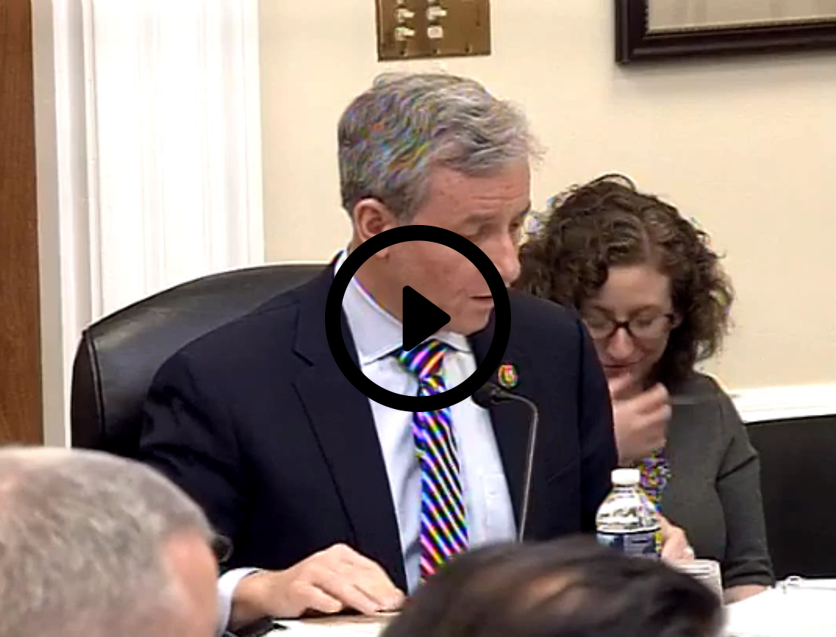Press Releases
Rep. Cartwright Presses Private Military Housing Companies on Protecting Military Families’ Rights as Tenants
Washington, DC,
March 3, 2020
Tags:
Housing
During a hearing of the Military Construction and Veterans Affairs Appropriations Subcommittee today, U.S. Representative Matt Cartwright (PA-08) pressed executives from companies that manage private military housing on what they are doing to protect the rights of U.S. military personnel and their families who live in housing units they oversee and manage. Rep. Cartwright’s concerns stem from reporting over the past year highlighting poor housing conditions that pose serious health risks to servicemembers and their families. Rep. Cartwright asked the executives whether they would honor an expanded “Tenants’ Bill of Rights” even after U.S. defense officials last week signed an agreement more limited in scope. While the executives expressed support for the intent of the additional tenant protections, Rep. Cartwright stressed the need for the subcommittee to continue monitoring the companies’ progress. “Know that this subcommittee, through its continued oversight, will for every remaining year of your fifty-year management contracts hold you to these commitments,” said Rep. Cartwright. Rep. Cartwright also expressed concern with reports of companies using non-disclosure agreements (NDAs) in cases of landlord-tenant disputes that relate to health and safety issues in base housing or other routine maintenance and repair requests. “Here’s my concern: we need transparency, we have to have transparency. If a little extra compensation is given so you can get an NDA, that’s not protecting both parties, that’s protecting the privatized housing company. And it’s going to hurt the people who need to know about the mold, or the infestation, or the paint chips, or whatever is wrong that led to the complaint in the first place,” Rep. Cartwright said later in the hearing. Watch a clip of Congressman Cartwright’s questioning: The full hearing video can be viewed here. Among the witnesses in the panel of executives were the following:
ADDITIONAL BACKGROUND Last week, in response to the directives of the Military Construction and Veterans Affairs Subcommittee and the FY 2020 NDAA, Defense Secretary Mark Esper and the military service branch Secretaries all signed a privatized military housing “Tenants’ Bill of Rights.” Left off the Pentagon’s list were the following, which were included in the Bill of Rights directive in the NDAA:
Also left off of the list were several other key tenant protections included in the bill text of the NDAA. Four of those other protections were:
This comes on the heels of serious concerns with the quality of privatized military housing that were raised last year. Throughout 2019, a Reuters investigation and other news outlets exposed deficiencies in maintenance and repair being perpetrated by the base housing property management companies; outright fraud in record-keeping and reporting to military officials occurring by those same companies; and real health harms – both physical and mental, temporary and permanent – being inflicted on service personnel and their families. In addition, other reports suggested that the private housing companies were forcing families into NDAs in exchange for addressing issues or maintenance requests within their units. Various hearings and investigations last year confirmed the problems. In response, Congress provided an additional $140.8 million to address the problems, and the service branches have provided Congress with reports of plenty of process additions and changes, such as new reporting structures and oversight plans, health policy issuances and performance measurements. Many companies, including those who were represented at today’s hearing, are currently engaged in 50-year contracts with the U.S. Department of Defense to manage housing facilities. |


